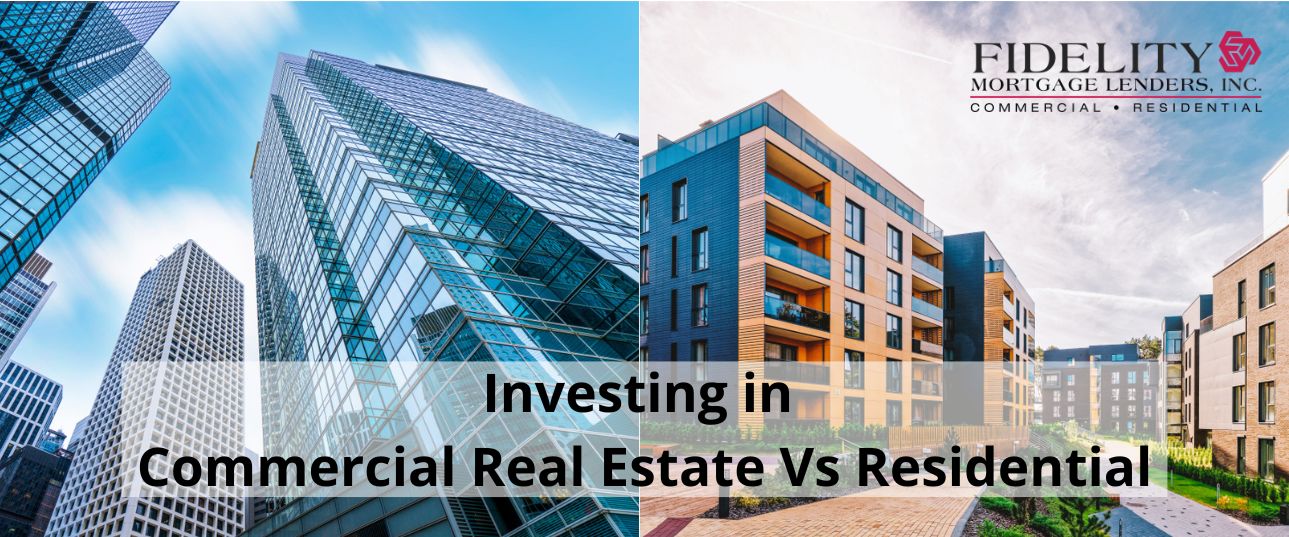The commercial real estate vs residential property debate is as relevant today as it’s been for decades. Both investment options allow you to expand your portfolio, qualify for tax benefits, and pursue financial freedom. Still, it’s not easy to choose between CRE and RRE especially if you don’t have sufficient knowledge of the industry. Deciding whether commercial properties are better than residential housing or even identifying the best location to build or acquire such properties can confuse any first-time real estate investor. Here are some tips to help you decide.
What is Commercial & Residential Real Estate?
Commercial real estate is any property built or rented out for business use. Examples include industrial properties, retail spaces, and offices. On the other hand, the residential real estate encompasses housing for rent, which is usually not owner-occupied, such as condos, apartments, and single-family homes.
Commercial Real Estate vs Residential Real Estate: Key Differences
Residential
- With RRE, the property has a single owner, with rare partnerships often limited to family members or friends
- There aren’t too many opportunities to network with other seasoned investors since RRE owners mostly build the properties themselves
- Rental agreements with tenants are usually brief, so the turnover tends to be high
- There’s less paperwork to deal with, which is why getting into residential real estate is a lot smoother for most retail investors
Commercial
- It’s harder for an individual investor to enter the commercial real estate market
- CRE is capital-intensive, which is usually an entry barrier for a retail investor
- A property investment firm can handle any complex paperwork on your behalf and help you select the right CRE investment option
- If you’re a retail investor, it’ll be much easier to get into CRE through REITs or fractional ownership
- The initial investment required is smaller when you venture into CRE through a REIT
Benefits of Commercial & Residential Real Estate Investing
Whichever side of the commercial real estate vs residential property debate you’re on, remember both can help you diversify your investment portfolio and grow your income. Also, you may be eligible for multiple tax benefits whether you invest in CRE or RRE. Most owners of rented real estate property can deduct costs incurred due to property management, depreciation, mortgage interest, and property maintenance, repair, or upgrades.
Commercial Real Estate vs Residential: Which One Should You Choose?
Both are valid real estate investment options, and your specific long-term and short-term goals should determine which one is right for you. Investing in a residential property makes more sense if:
- You’re after quick returns, such as by renovating or wholesaling a home for rent
- You prefer investment property that’s less stressful to acquire and manage
- You’re prepared for day-to-day rental property management responsibilities, including tenant communication
On the flip side, you may consider investing in commercial real estate if:
- You have long-term goals to grow your wealth with passive rental income
- You prefer an investment property with low tenant turnover (most commercial property tenants are businesses or companies with multi-year leases, guaranteeing long-term rental income)
When assessing the viability of commercial real estate vs residential real estate investing, your goals and potential risks are the decisive variables. There’s nothing wrong with either option, it all depends on your specific situation. Regardless of your final investment property choice, the experts at Fidelity Mortgage Lenders can provide you with flexible financing to get started in the sector. Contact us today to learn more!







Leave A Comment